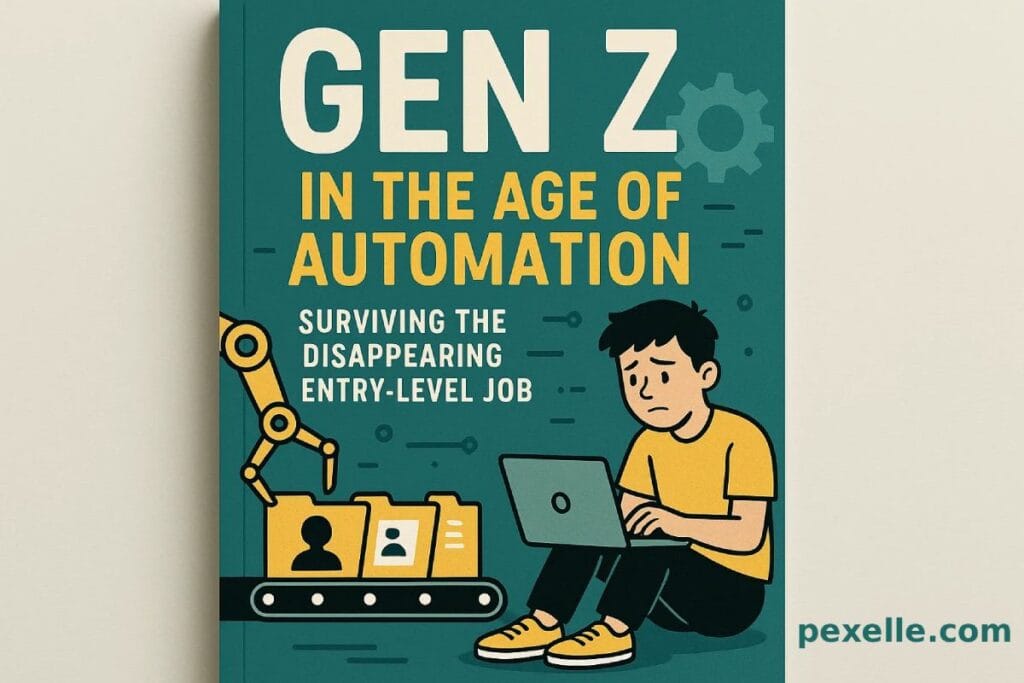Gen Z in the Age of Automation: Surviving the Disappearing Entry-Level Job

1. The Automation Shockwave
In 2025, automation is no longer a futuristic threat — it’s the new hiring filter. Entry-level positions once seen as the “gateway” to careers are vanishing. AI-driven systems can now handle administrative, data-entry, and even basic creative tasks faster and cheaper than human employees. According to the Future of Jobs 2025 Report by the World Economic Forum, over 44% of current job skills are expected to change by 2030, with automation accelerating that transition.
For Gen Z — the first generation raised with smartphones and TikTok algorithms — this isn’t just a labor shift; it’s a structural rewrite of how careers begin. The traditional “start small, learn, grow” model no longer applies when the small jobs are automated.
2. The New Skill Divide
The gap isn’t just between humans and machines anymore — it’s between humans who adapt and those who don’t. Automation is pushing Gen Z to acquire hybrid skills that combine technical literacy with human creativity and judgment.
Here are the most in-demand areas for 2025:
- AI Literacy & Prompt Engineering: Understanding how to collaborate with AI systems, not just use them.
- Critical Thinking & Complex Problem Solving: Machines analyze; humans interpret.
- Digital Communication & Branding: The ability to build online presence and credibility across networks.
- Sustainability & Ethics Awareness: Employers increasingly demand awareness of social and environmental impact.
Those who see AI as a collaborator — not a competitor — will shape the future of work, not be replaced by it.
3. The Employers’ New Perspective
Employers are changing their hiring lens. They’re no longer impressed by degrees; they want proof of skills and adaptability. Companies like Google, IBM, and LinkedIn are prioritizing skills-based hiring — evaluating candidates through project portfolios, certifications, or practical assessments rather than academic titles.
In this environment, micro-credentials, bootcamps, and project-based learning are becoming the new university. Platforms like Pexelle that verify skills and display digital proof of competence are no longer optional — they’re career lifelines for Gen Z professionals navigating a collapsing entry-level market.
4. From Survival to Strategy: How Gen Z Can Thrive
Survival in this economy requires a mindset shift. Gen Z professionals must become “self-upgrading systems.”
Here’s how:
- Continuous Learning: Dedicate weekly time to upskill through AI tools, online courses, or side projects.
- Portfolio First: Replace résumés with verifiable project proof — GitHub repos, design prototypes, or blockchain-anchored credentials.
- Network Intelligently: Join digital communities in your field; 60% of 2025 job opportunities are discovered through networks, not job boards.
- Be AI-Augmented: Learn how to use automation tools to scale your personal output — from coding assistants to marketing AIs.
The winners of 2025 won’t be the ones who compete against AI, but those who co-create with it.
5. The Future of Work Belongs to the Adaptable
Automation is not the end of opportunity; it’s the end of mediocrity. Gen Z now faces a job market where technical ability, creativity, and agility are all non-negotiable. Those who embrace lifelong learning, build authentic digital identities, and adapt faster than the algorithm will define the next decade of the global workforce.
The question isn’t “Will AI take my job?” — it’s “How fast can I evolve?”
Source : Medium.com




